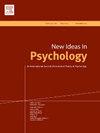Understanding the potential impact of ostracism on LGBTQ health disparities
IF 2.9
3区 心理学
Q2 PSYCHOLOGY, EXPERIMENTAL
引用次数: 0
Abstract
Research finds harmful impacts of ostracism on the health and well-being of the ostracized individual (as well as the ostracizer and members of the community). While often conceptualized as social (interpersonal), ostracism may originate at multiple levels of the socio-ecological system, including forms of political and institutional ostracism. The ostracism of LGBTQ people originates in cultural stigma and is reproduced and reinforced at all levels, from discriminatory laws and institutional policies (e.g., workplace, educational), to the actions of community or family members, to interactions with strangers. Ostracism, acute and chronic, creates increased risk for psychological and physical harm to LGBTQ individuals, including depression, suicidality, resignation, and physical pain. This paper presents an argument for the importance of recognizing the different types and potential harms of ostracism at multiple, concurrent levels of the environment for LGBTQ people, and understanding the activation of physical pain sensations in the brain, especially as part of chronic negative health impacts. Studying ostracism directly may lead to new conceptualizations for coping with minority stress involving ostracism, and for treatment protocols and interventions responding to the specific harms of ostracism for LGBTQ people.
了解排斥对LGBTQ健康差异的潜在影响
研究发现,被排斥对被排斥者(以及被排斥者和社区成员)的健康和福祉产生有害影响。拒排斥通常被定义为社会(人际)排斥,但它可能起源于社会生态系统的多个层面,包括各种形式的政治和制度排斥。对LGBTQ人群的排斥源于文化上的耻辱,并在各个层面上得到复制和加强,从歧视性法律和制度政策(如工作场所、教育)到社区或家庭成员的行为,再到与陌生人的互动。无论是急性还是慢性的排斥,都会增加LGBTQ个体心理和身体伤害的风险,包括抑郁、自杀、辞职和身体疼痛。本文提出了一个论点,即认识到LGBTQ人群在多个并发环境中被排斥的不同类型和潜在危害的重要性,以及理解大脑中身体疼痛感觉的激活,特别是作为慢性负面健康影响的一部分。直接研究排斥现象可能会为应对涉及排斥的少数群体压力,以及针对排斥对LGBTQ人群的具体危害的治疗方案和干预措施提供新的概念。
本文章由计算机程序翻译,如有差异,请以英文原文为准。
求助全文
约1分钟内获得全文
求助全文
来源期刊

New Ideas in Psychology
Multiple-
CiteScore
4.80
自引率
3.80%
发文量
37
期刊介绍:
New Ideas in Psychology is a journal for theoretical psychology in its broadest sense. We are looking for new and seminal ideas, from within Psychology and from other fields that have something to bring to Psychology. We welcome presentations and criticisms of theory, of background metaphysics, and of fundamental issues of method, both empirical and conceptual. We put special emphasis on the need for informed discussion of psychological theories to be interdisciplinary. Empirical papers are accepted at New Ideas in Psychology, but only as long as they focus on conceptual issues and are theoretically creative. We are also open to comments or debate, interviews, and book reviews.
 求助内容:
求助内容: 应助结果提醒方式:
应助结果提醒方式:


